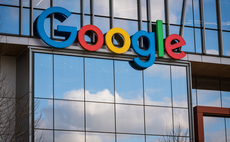The future of Safe Harbour is in serious doubt - which spells big problems for the US internet giants
The future of Safe Harbour, the agreement that covers the transfer of personal data between the EU and the US, is in doubt. Safe Harbour, which dates back to 2000, bridges the gap between the da...
To continue reading this article...
Join Computing
- Unlimited access to real-time news, analysis and opinion from the technology industry
- Receive important and breaking news in our daily newsletter
- Be the first to hear about our events and awards programmes
- Join live member only interviews with IT leaders at the ‘IT Lounge’; your chance to ask your burning tech questions and have them answered
- Access to the Computing Delta hub providing market intelligence and research
- Receive our members-only newsletter with exclusive opinion pieces from senior IT Leaders






















